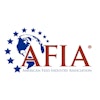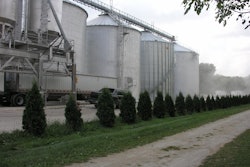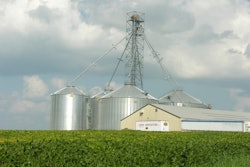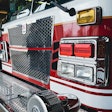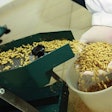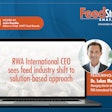Making and keeping your commitment to providing high- quality feed products and grain to the marketplace needn’t be a daunting task. Our industry works hard to ensure all links of the grain channel chain are tempered with the resources needed to support grain quality. Join us as we check on how our industry’s associations engage and enlighten its member and stakeholder publics on quality-related issues.
What criteria are important to consider when looking at hiring a new employee? Or, maybe you’re deciding on which company will earn your business in a bid shootout.
People like doing business with those who are resourceful, responsive and demonstrate a solid grasp of important issues that affect your success.
Oddly enough, whether you are searching for a business partner or looking for ways to build a commitment to boosting grain quality at your facility, the answers are pretty similar.
Fortunately, for the feed and grain industry, organizations are working hard each and every day to ensure the U.S. grain and feed industry delivers products of the highest quality to a demanding marketplace.
“During the melamine crisis, which brought quality controls and end-user safety to the forefront of the public conscience, it became abundantly clear that our industry needs to be vigilant in demanding optimum quality from ourselves, our suppliers and our leadership,” says Joel Newman, president/CEO, American Feed Industry Association. (AFIA). “Fortunately, we have industry associations which work closely with its members and stakeholders to improve our ability to deliver on the quality promise.”
Education Outreach
The AFIA and other industry associations, such as the National Grain and Feed Association (NGFA) and the Grain Elevator and Processing Society (GEAPS), have been at the forefront of educating the industry about grain quality for decades. GEAPS has been especially diligent in its education efforts with numerous seminars, written materials (including an outstanding virtual reference library) and training opportunities at regional and national conferences.
However, it’s GEAPS’ distance-education program which offers its members and others in the grain industry unique opportunities to develop their skills. All of the courses — designed specifically for the needs of GEAPS members — are planned and developed jointly by GEAPS and Purdue and Kansas State universities, in conjunction with other partners on a course-by-course basis, including a recent program on grain quality management.
The grain quality management course lasted about five weeks and focused on such topics as management and maintenance of quality grains and oilseeds, and includes, lectures on quality factors of value-added grains and oilseeds; moisture content determination; grain sampling and quality standards. It also covered quality assured production of IP grains; relationship between air and grain properties; fan selection and operational management for drying, conditioning and aerating grains.
Be sure to check out the distance learning link on the GEAPS website and check out the list of excellent reference materials on grain quality management (geaps.com/dist_learn/course_520). As an added bonus, nonmember registration fees include a one-year GEAPS membership, ideal for learning what GEAPS has to offer its members.
Reaching Out to Customers
In looking at how it educates its key publics on feed quality issues, AFIA feels it can best serve the feed industry by being a conduit between end user, manufacturer and regulatory audiences. Judging by the turbulent nature of the industry, it would appear AFIA has its hands full . . . and oddly enough, that’s how they like it.
“The success and growth of our Safe Feed/Safe Food (SF/SF) certification program is a testament to the feed industry’s desire to become certified and let the world know they value production protocols that emphasize quality and safety,” says Keith Epperson, AFIA’s vice president of manufacturing and training. “What started with 60 or 70 facilities has now swelled to over 300, including feed manufacturers, ingredient suppliers and integrators.”
The SF/SF program is successful as it requires third-party validation of a comprehensive record of best-practice requirements ranging from facility planning to ingredient sourcing controls to product traceability of program participants, in order to earn certification.
“Certification demonstrates that these facilities have in most cases exceeded regulatory requirements for medicated and nonmedicated feed and ingredients, and certainly raises the bar for the industry,” Epperson adds.
“During a recent meeting with AFIA and FDA, senior FDA officials stated their desire to cooperate in encouraging more firms to join the SF/SF program. In fact, this issue has been raised formally by FDA in a request for comments published in the Federal Register,” states Richard Sellers, AFIA’s vice president of feed regulation and nutrition. “We have also been in discussions with various agencies in the European Union and South America for a similar certification program, which should help address variability of standards between international markets, which is one of the biggest challenges to quality we have today.”
Newman, Epperson and Sellers all are quick to state that quality has always been an important issue but caution that quality should not take a back seat to supply issues.
“Even in times of tight supplies, quality remains vitally important to the feed industry,” Newman emphasizes. “Quality and end-product safety have direct linkage, and as customers look to alternative sources to economically replace now hard-to-find feedstocks, you introduce more variability into feed products, which is not the ideal.”
Back to School
Higher education weighs in on grain quality in numerous ways each and every day. The University of Illinois and Purdue University are taking it a step further by presenting the International Grain Quality and Technology Congress, slated for July 15-18, in Arlington Heights, IL just west of Chicago. (See ad below for more details).
Participants and presenters include the leading scientists, engineers, economists and professionals from academia, government and the agricultural and food/feed/fiber/fuel industry involved in the production, handling and utilization of cereals, oilseeds and co-products, and the manufacturing of grain-based foods, feeds, fiber and fuel from throughout the world. Representatives from the agricultural and food/feed/fiber/fuel industry (including equipment, biotechnology and service suppliers; grain producers, handlers and processors; food and feed manufacturers; fiber and fuel producers), certification agencies, producer organizations, grain inspection services, research institutes, and international trade policy groups from throughout the world are invited to participate.
